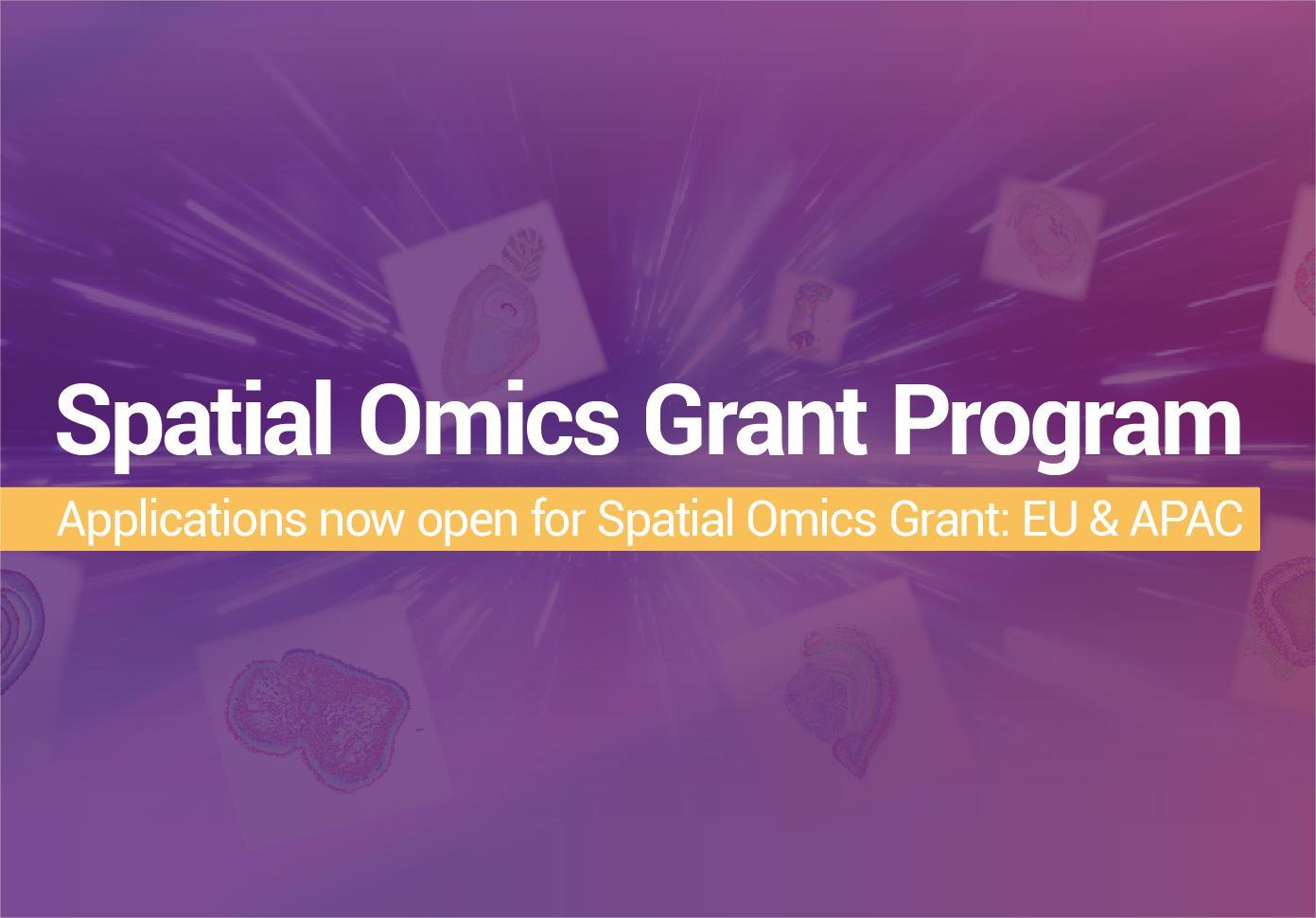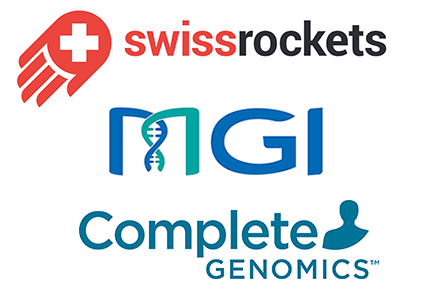Auckland, New Zealand, 3 July 2025 - MGI Tech Co., Ltd. (“MGI”), a company dedicated to developing core tools and technologies that drive innovation in life sciences, has joined efforts with Lincoln University in Canterbury to address sustainable challenges in viticulture through advanced sequencing technology. The initiative aims to utilize genomics to breed better varieties of grapevines and hops that are tolerant and resistant to pests and diseases, thus reducing fungicide use across New Zealand’s $2.1 billion wine export industry.
(Click the picture to learn about the story)
Viticulture Challenges in New Zealand: Disease, Chemicals and Sustainability Pressure
Viticulture is a significant economic source of revenue for New Zealand, ranking as the nation’s sixth-largest export earner.
However, like many primary sectors, it faces intensifying pressure to improve sustainability and reduce environmental impact. The country’s vineyards are particularly vulnerable to fungal diseases, often requiring frequent and broad-spectrum spraying to maintain vine health and grape quality.
Each year, New Zealand farmers apply approximately 3,400 tonnes of pesticides. Alarmingly, under the US Environmental Protection Agency classification, 60% of fungicides and 72% of plant growth regulators used locally are considered potential carcinogens. This has placed the sector in the crosshairs of consumer and environmental scrutiny, particularly as climate change drives more volatile weather conditions that heighten disease risks.
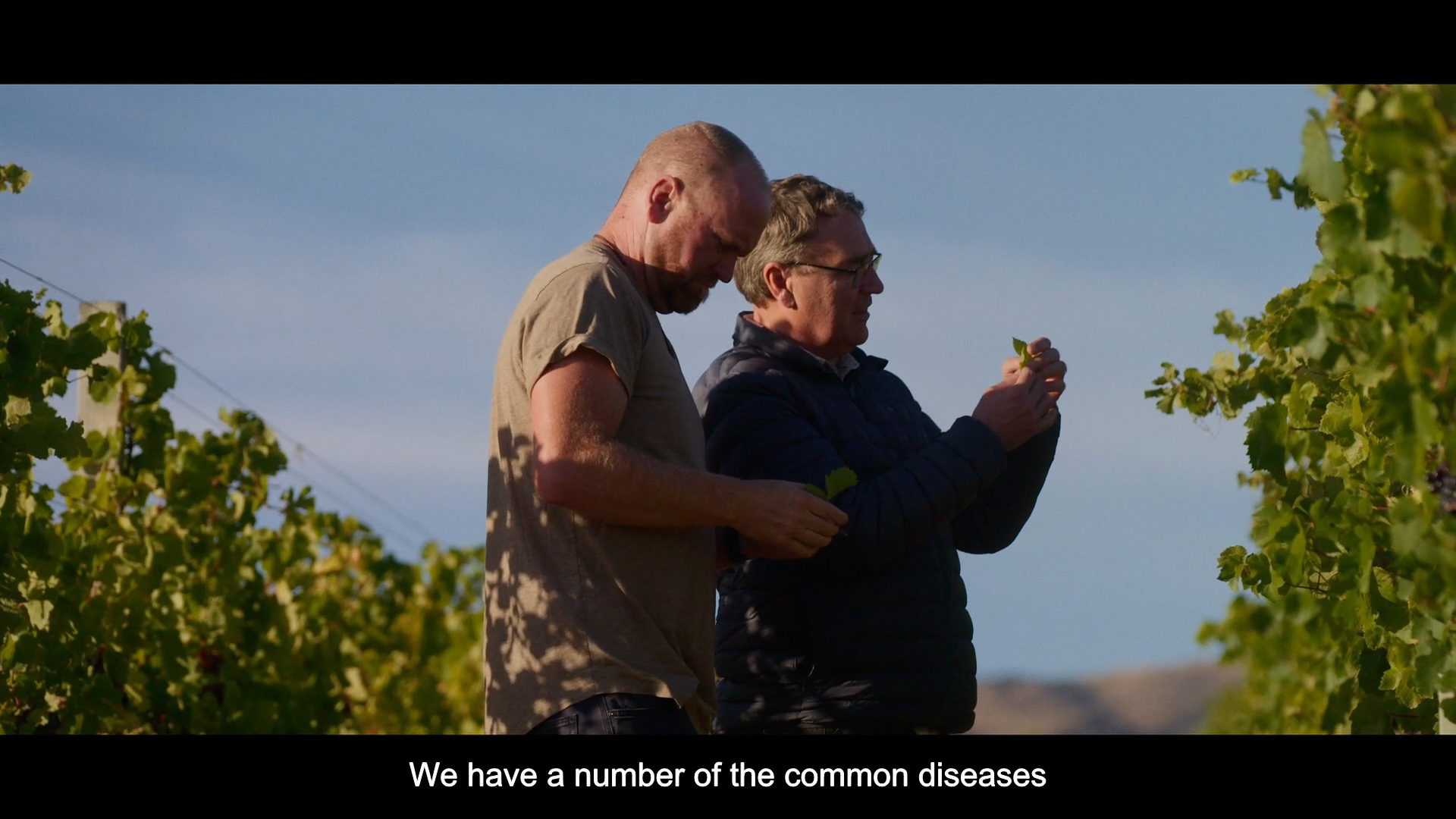
New Pathways from Genomics
To address these challenges, a team of New Zealand scientists has started a genomic study to reduce the wine sector’s reliance on chemical sprays. By using advanced sequencing technology, researchers can now rapidly scan thousands of grapevine samples to identify those with natural resistance to disease and environmental stress.
Associate Professor Christopher Winefield, from Lincoln University’s Department of Wine, Food & Molecular Biosciences, who first introduced genomics into his research to explore traits like fungal tolerance and soil health response, is now scaling the project significantly through MGI’s high-throughput sequencing platform.
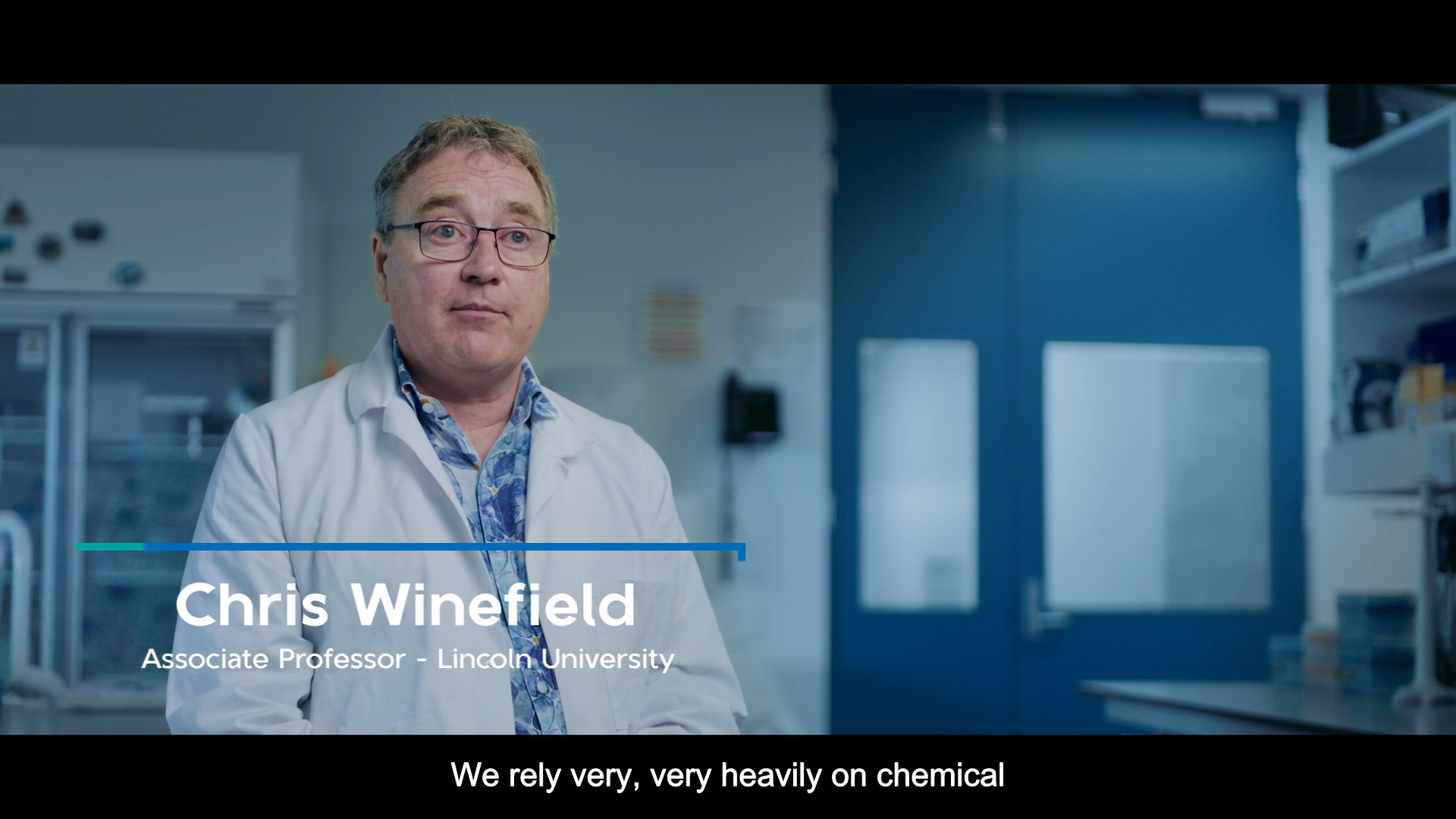
This approach not only opens a pathway to breed more resilient grape varieties, it also enables real-time monitoring of vineyard conditions, laying the foundation for more targeted, sustainable and cost-effective vineyard management.
The genomics practices allow scientists to map the natural genetic diversity within thousands of grapevines, identifying those with inherent disease resistance. Early findings suggest that, with targeted intervention informed by this data, chemical spray use could be reduced by up to 80% in some vineyards.
“You’re never going to get to zero,” says Winefield , “but even removing a single late-season spray has multiple benefits – lower costs, less residue in the wine and reduced pressure on soil health and the environment.”
The MGI Sequencing: Achieving Genomics at Scale
Lincoln University researchers have installed the MGI DNBSEQ-G400 genome sequencer, a next-generation sequencing platform enabling unprecedented scale and speed in genomics with economic cost. Traditionally, testing a few hundred grapevine samples per year was considered standard. Now, the lab can process over 50,000 annually – a one-hundredfold increase in volume.

“The introduction of MGI sequencing tools has really helped democratise sequencing for small teams like myself,” says Winefield. “The cost of that sequencing is highly competitive. We’re now looking to process up to 50,000 samples a year – we simply couldn’t do that without MGI’s support.”
The MGI DNBSEQ-G400 platform can also support real-time sequencing to detect pathogens like powdery mildew and mealybug. This enables precision agriculture approaches, where interventions are localised rather than applied uniformly.
“Instead of scheduled spraying, farmers can move to evidence-based treatment. It’s a shift from blanket coverage to pinpoint accuracy. That means fewer chemicals in the environment and better resistance management,” says Winefield.
The genomic data is also helping scientists identify vines that are more resilient under water stress or nutrient limitations – a key consideration as climate volatility increases.
Dr. Bicheng Yang, Director of MGI Australia, says the project showcases how modern genomics can drive sustainability.
“This is a powerful example of how cutting-edge technology supports the future of agriculture. By helping researchers uncover the genetic drivers of disease resistance, we’re enabling the industry to move away from chemical dependency and toward natural plant resilience.”
The ability to conduct these tests domestically also removes the logistical and financial barriers of sending samples overseas, saving critical time during the growing season.
A Commercial Vision: Democratising Genomic Testing
Beyond academia, the project has commercial ambitions. Winefield and his colleagues are forming a standalone venture to bring affordable genomic testing to the country’s broader agriculture sector. The startup will serve viticulture, horticulture, and dairy farms, giving producers access to real-time insights previously confined to high-cost labs.
“This is about getting world-class science into farmers’ hands,” Winefield says. “Our goal is to process a million samples annually at launch and grow to 10 million within five years.”
This data-driven model would enable even small-scale producers to detect early signs of disease, make proactive crop management decisions, and cut down on unnecessary chemical inputs.
Environmental and Economic Impact
The implications of the study extend well beyond New Zealand. With international viticulture facing similar challenges, the Canterbury research could become a blueprint for sustainable production globally. According to Winefield, New Zealand’s unique microclimates and robust science infrastructure make it an ideal testbed.
“New Zealand may never feed the world by volume,” he says, “but we can lead through better science. Exporting our genomic insights, tools and resilient plant stock could transform productivity and environmental outcomes for global agriculture.”
Toward a National Infrastructure
Winefield envisions a future where genomic diagnostics become as routine in farming as soil testing or weather tracking.
“This isn’t just about grapevines. Whether it’s hops, kiwifruit, apples or livestock, we can use this data to reduce disease pressure, improve yields and make smarter input decisions.”
Climate change adds urgency. With warmer, wetter conditions driving earlier and more aggressive outbreaks of disease, traditional spraying schedules are proving less effective. The genomic model offers farmers the precision and agility to adapt to real-time environmental changes.



 Sequencer Products: SEQ ALL
Sequencer Products: SEQ ALL













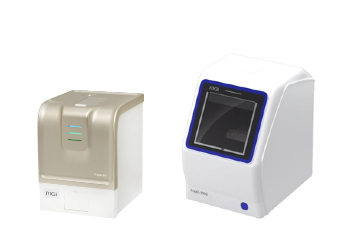

 Technologies
Technologies Applications
Applications Online Resources
Online Resources Data Bulletins
Data Bulletins Service & Support
Service & Support Global Programs
Global Programs Introduction
Introduction Newsroom
Newsroom Doing Business With Us
Doing Business With Us Creative Club
Creative Club










